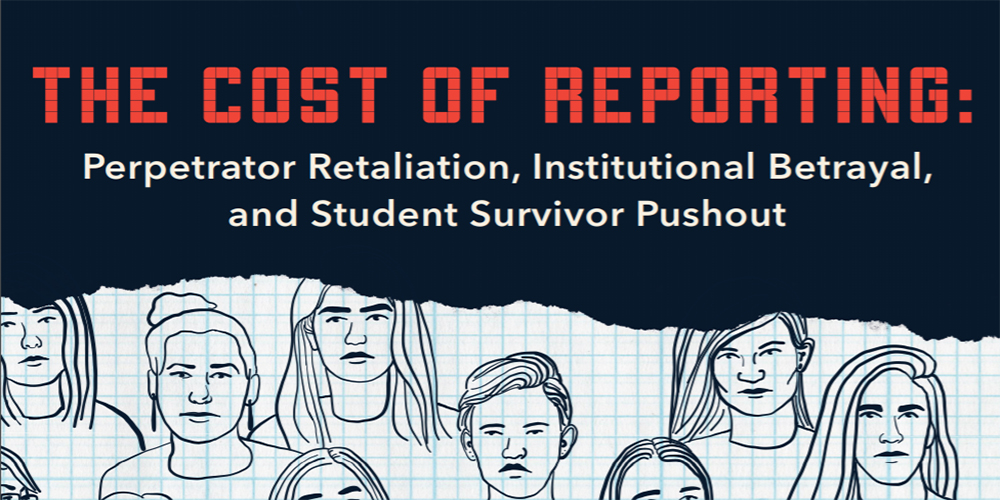Know Your IX, a survivor- and youth-led advocacy group that aims to empower students to end sexual and dating violence, released a report drawing from a survey of more than 100 student survivors who reported their abuse to their schools.
The 42-page report discusses adverse impacts of sexual or dating violence experienced by students, including educational, financial, career and health impacts.
The findings also outline the backlash survivors are reportedly facing when filing formal reports of sexual violence to their schools, among other things. It includes direct quotes from survivors about their experiences and quotes from school administrators and their perpetrators. It also describes survivors’ experiences in the aftermath of violence and trauma.
Overall, the report found 39% of survivors who reported to their schools experienced a substantial disruption in their educations. Broken down further, the report shows 27% of survivors who reported took a leave of absence, 20% transferred schools, and nearly 10% dropped out of school entirely. Additionally, 35% of survivors said their schools explicitly encouraged them to take time off.
The survey found nearly all survivors who reported experienced a negative impact on their GPA. According to the report, educational interruptions were not from sexual violence alone, but because of violence exacerbated by schools’ harmful responses to reports of violence.
Approximately 70% of survivors who reported said they experienced adverse effects on their safety and privacy, which led to many negative impacts, including further physical and psychological harm.
The report also claims an alarming trend of respondents weaponizing Title IX to retaliate against survivors and the use of defamation suits to threaten survivors into silence. More than one in five survivors who report to their school are threatened with a defamation suit, says the report.
Here are some additional findings:
- More than 40% of survivors disclosed they suffered from Post-Traumatic Stress Disorder (PTSD)
- More than 33% reported experiencing anxiety
- More than 25% reported depression in the wake of violence
- 15% of survivors were threatened with or faced punishment by their schools for coming forward
- Of those survivors, 62.5% either took a leave of absence, transferred schools, or dropped out
- 10% reported experiencing retaliatory cross-filing from respondents
- 50% of those individuals took a leave of absence or transferred schools
Know Your IX Recommendations for Improvement
To conclude its report, Know Your IX provided recommendations for how K-12 and higher education institutions can support survivors. Recommendations include:
- Access to Accommodations and Safety Protections:
- Mental health services, adequately trained providers, and crisis advocates
- Resident and dining accommodations, such as a reserved number of vacant rooms or apartments for students who feel unsafe in their living situation in the wake of violence
- Academic accommodations, such as tutoring, extensions on assignments, and additional time for exams
- Fair Discipline Processes:
- Robust procedural rights for both parties, including access to counsel, a personal supporter of choice, and the ability to provide testimony without encountering the opposing party and to view testimony provided by the other party
- Limiting Perpetrator Backlash:
- The group recommends the Department of Education create a task-force of experts in campus sexual misconduct and litigation abuse, survivor advocates, survivors who have faced campus-based retaliation, and attorneys
- States should work with survivor experts and attorneys to explore how Anti-SLAPP laws, which are designed to provide for early dismissal of meritless lawsuits filed against people for the exercise of First Amendment rights, could be adapted to protect student survivors
Other recommendations outlined in the report include reviewing punishment(s) against survivors, financial impact solutions, and increased enforcement of survivor rights.







